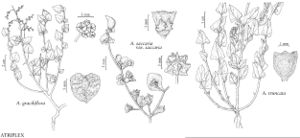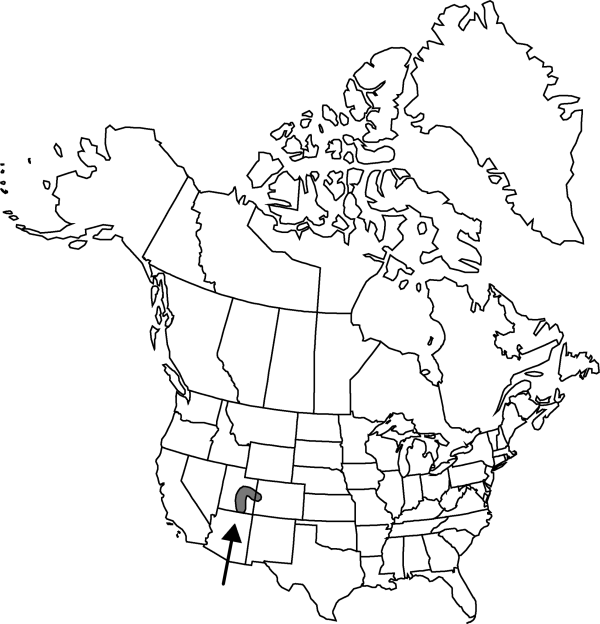Difference between revisions of "Atriplex graciliflora"
Proc. Cali f. Acad. Sci., ser. 2, 5: 717. 1895.
FNA>Volume Importer |
FNA>Volume Importer |
||
| Line 12: | Line 12: | ||
|name=Obione graciliflora | |name=Obione graciliflora | ||
|authority=(M. E. Jones) Ulbrich | |authority=(M. E. Jones) Ulbrich | ||
| + | |rank=species | ||
}} | }} | ||
|hierarchy=Chenopodiaceae;Atriplex;Atriplex subg. Obione;Atriplex sect. Obione;Atriplex subsect. Graciliflorae;Atriplex graciliflora | |hierarchy=Chenopodiaceae;Atriplex;Atriplex subg. Obione;Atriplex sect. Obione;Atriplex subsect. Graciliflorae;Atriplex graciliflora | ||
| Line 36: | Line 37: | ||
-->{{#Taxon: | -->{{#Taxon: | ||
name=Atriplex graciliflora | name=Atriplex graciliflora | ||
| − | |||
|authority=M. E. Jones | |authority=M. E. Jones | ||
|rank=species | |rank=species | ||
| Line 51: | Line 51: | ||
|publication year=1895 | |publication year=1895 | ||
|special status= | |special status= | ||
| − | |source xml=https://jpend@bitbucket.org/aafc-mbb/fna-data-curation.git/src/ | + | |source xml=https://jpend@bitbucket.org/aafc-mbb/fna-data-curation.git/src/f50eec43f223ca0e34566be0b046453a0960e173/coarse_grained_fna_xml/V4/V4_664.xml |
|genus=Atriplex | |genus=Atriplex | ||
|subgenus=Atriplex subg. Obione | |subgenus=Atriplex subg. Obione | ||
Revision as of 22:42, 16 December 2019
Herbs, branching from base, mainly 1–3 dm. Stems often suffused with red-purple, terete, sparingly farinose when young. Leaves mainly alternate, numerous; petiole 2–12(–16) mm; blade cordate-ovate to orbicular, subreniform, cordate, or deltoid, (5–)8–20(–25) mm and about as wide or wider, base truncate to cordate (or attenuate when young), apex rounded to obtuse or acute. Staminate flowers in loose, deciduous, terminal panicles overtopping foliage, rachis and branches filiform, glomerules often beadlike in alternate position along rachis, perianth 5-lobed. Pistillate flowers axillary. Fruiting bracteoles on stipes 2–6 mm, samaralike, suborbicular, oblong or cordate in outline, winged, compressed, 6–16 mm wide, margins 2–4 times as wide as body, wings undulate or entire, surfaces smooth. Seeds white, 3 mm wide, dull.
Phenology: Flowering summer.
Habitat: Saltbush, mat-atriplex, seepweed, greasewood, rabbitbrush, and tamarix communities on saline, often salt encrusted and semibarren substrates derived from Mancos Shale, Tropic Shale, Entrada, and other fine-textured formations
Elevation: 1100-2000 m
Discussion
Atriplex graciliflora is unique among our indigenous atriplices in having samaralike, entire fruiting bracteoles. When the bracteoles are considered along with the slender, terminal, staminate panicles of alternating beadlike glomerules, the species is unmatched. Its relationship is apparently with A. saccaria, which has undergone considerable morphologic radiation within the Four Corners region.
Selected References
None.

